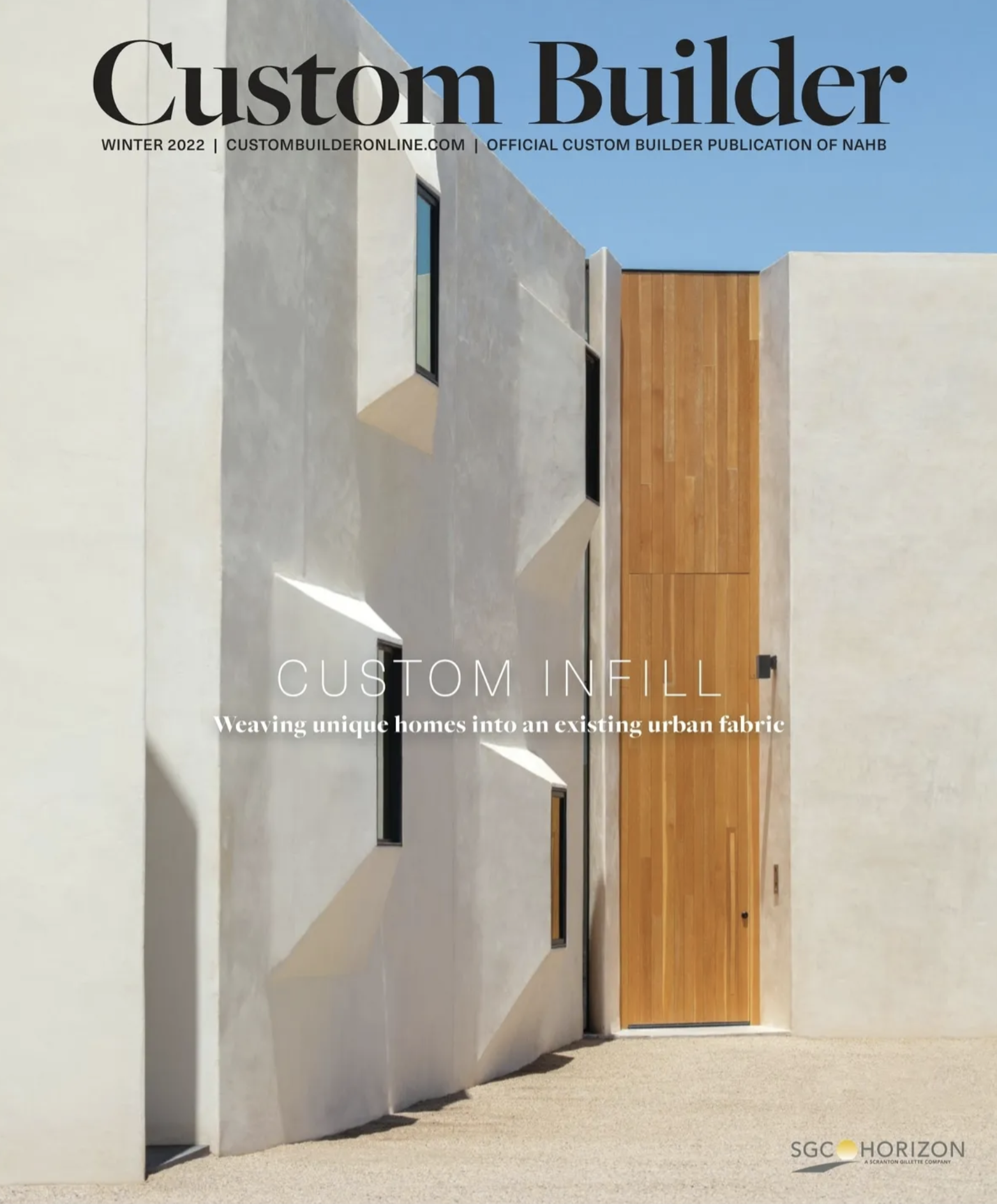At first blush, many custom home builders might wonder what prefab modular buildings have to do with their work. And until recently, most residential architects would probably wonder the same thing. In the last several years, that has begun to change.
Due to the influence of companies including Apple, Volkswagen and Target, design and modern architecture have received more coverage in the popular press, literally bringing design to people's doors. The public's increasing appetite for modernism's sculptural forms, clean lines, flat roofs, large expanses of glass and expressive materials has led them to seek out architects who speak that language in their work and can translate that language into the client's lifestyle. Modernism is more than just a style, though. It stems from the 20th century dream that the machine will make it easier to — among other things — mass-produce quality housing. Ironically, the current image of modernism conveys a sense of exclusivity, even as ideals such as building smaller with increased attention to detail remain a central goal of most architects.
Alchemy Architects has turned to modular plants around the country to build their modern weeHouses. Building in controlled factory settings allows houses to be delivered to the site substantially complete. After the upfront planning and design time, fabricating a weeHouse (or not-so-weeHouse) can take as little as two weeks on an assembly line. Walls, floors, roofing, windows, siding, cabinetry, plumbing and electrical are finished before the unit goes out the door. Alchemy's clients recognize this process as a benefit in building their customized, completed-on-site house and see move-in time drop to weeks — not months or years!
Factories capable of producing modular structures have been providing houses for decades. Prefab, modular houses are built to withstand the stresses of transport and often outperform their site-built counterparts. Careful analyses of typical modular production, experience with design/build, and value engineering using cutting-edge materials where appropriate (or more traditional solutions when needed) have all led Alchemy to open up the possibilities in prefab construction. A library of plans and details, flexible enough to conform to particulars of site and client, allows Alchemy to create customized houses within modest budgets.
So where does the builder come in?
Modular construction still depends on foundations, utilities, seaming and coordination. Depending on the factory process, detailing (such as siding, tile, specialty fixtures and custom built-ins) is sometimes best done on-site. For the custom builder, doing this work on-site means less cost and lower risk because weather, supply chain fulfillment, trade contractors and site security become non-issues.
In the last several years, green has also loomed large on the public radar as climate change and energy costs become vital issues. Builders and homeowners alike are seeing the benefits that factory construction, high-density insulation options, green roofs, in-floor heat, efficient mechanicals and even solar hot water or solar electric can provide. When a client is saving time and money on the basic construction, upgrades for detailing and alternative energy seem more affordable and become more attainable.
Cooperation and team building early in the planning process is essential in bringing the talents of experienced builders and progressive trades together. As the culture of home building changes, considering prefabrication and design/build within a modern vernacular is a way to encourage clients to "green up" their lifestyles and provide benefits beyond just the house itself.
Geoffrey Warner, geoffrey@alchemyarch.com, www.alchemyarch.com
| Author Information |
| As principal of Alchemy Architects in St. Paul, Minn., Geoffrey Warner, AIA, has actively fostered a collaborative workshop of alchemists to facilitate experimentation with key elements that the firm designs, from weeHouses to lofted condos. |


